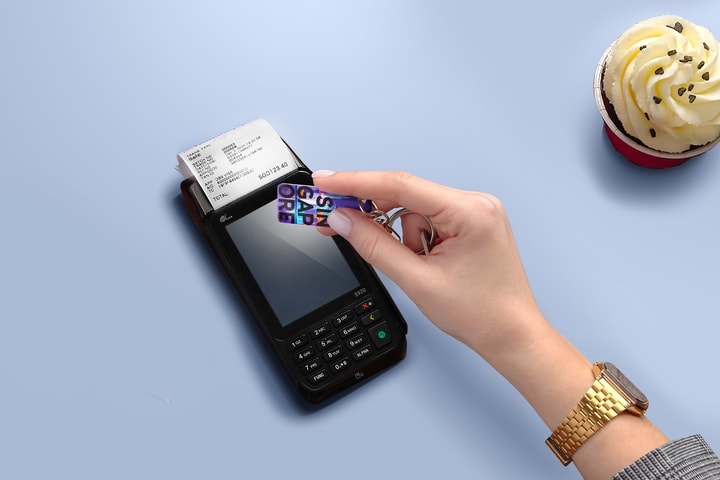What is RFID and how does it work?

Technology has allowed many companies to automate some of their processes in order to be more productive or accurate in certain circumstances. Reducing the margin of error in departments such as logistics is key in all companies and that is just one example where RFID technology comes into play.
The RFID or radio frequency identification has become indispensable in many companies, small and medium businesses for its ability to label products. In this way and thanks to this technology, the chances of failures related to poor stock management are considerably reduced.
Table of Contents
What is RFID?
RFID is a product identification system that at first glance may appear similar to a traditional barcode but offers great advantages. The classic barcode uses an image to identify the label on the product, while RFID uses radio waves to communicate with a microchip. This microchip can be integrated into a large number of media, such as an RFID tag or label, a card, or a transponder.
Its use is more widespread than it might seem at first glance, thanks to the great help it provides in terms of control systems. In this way, it is easy to find it in the automatic payment of parking lots and highways, when we use an access card or when buying a garment. In these cases, the use of radio frequency identification technology or RFID is very much. Its efficiency has allowed that in recent years it has become the preferred method in supply chains and logistics centers.
To read this data, you need a reader and an RFID antenna, which will identify the Tag and remotely read the content of the smart tag attached to the object. The RFID microchip has a large data storage capacity, so it will allow the storage of much more information than traditional barcode labels. They also stand out in terms of security as they are more difficult to replicate and the reading is done practically instantaneously, eliminating the classic problem of alignment or reading problems of classic barcodes.
Also Read: Top 6 Natural Language Processing (NLP) Trends for 2021
How does it work
RFID technology consists of an RFID antenna, an RFID reader (Transceiver), and an RFID tag (RF-tag). The reader detects the Tag or the smart tag and emits a signal to the reader, which is in charge of validating the information contained in the tag. The reader, in turn, sends the information to the customer’s central system (ERP), where the data is updated on the fly. These labels send the information by radio frequency to the reader, who interprets it and in some cases edits it to add data on the traceability of the product before sending it to the data processing system.
The uses of RFID technology
As we have mentioned, thanks to its precision and security, it is increasingly present in all types of businesses and services. In its beginnings, its implementation was key in certain works where monitoring and the margin of error may be minimal, due to the possible serious consequences of a labeling failure, such as in the pharmaceutical world or in hospitals.
- Logistics centers: to monitor the products that enter and leave the warehouse or to control the available stock.
- In food : where there are a lot of different references and even some with similar names. Accurately control expiration dates or lot numbers.
- In hospitals : medication or patient tests and information can be perfectly controlled with an RFID tag.
- By credit card: guarantees data security and prevents withdrawals in case of theft or loss.
- In livestock: for animal control (vaccines, food, physical data, etc.) It is also a quick method to identify an animal in the event of complications.
- In stores : it is one more system that was extended in fashion stores, since it allows to accurately trace the garments sold, distributed and even stolen.
- In the industry: it allows to automate processes, reduce errors, execution times and thus improve the working conditions of workers, achieving a more efficient company.
- In access control: know the number of people entering or leaving or check if an entry is false.
Conclusion
As we can see, this is a technology that can greatly help large and medium-sized businesses. It is possible that if you are a self-employed worker or have a small business, you do not need its implementation. However, it may be an option to take into account the growth or expansion phases of the business, in order to control our product much better.






